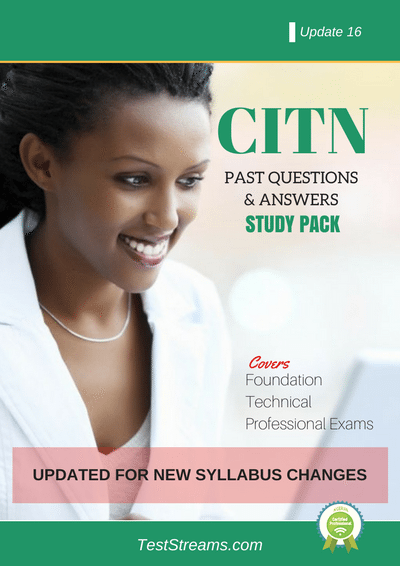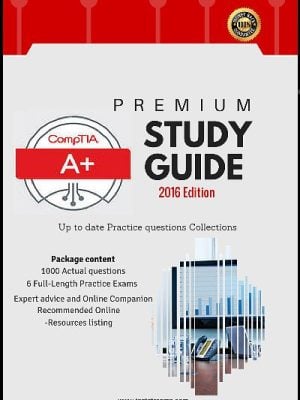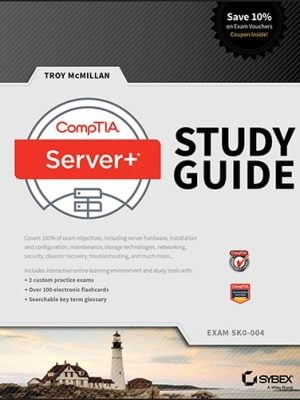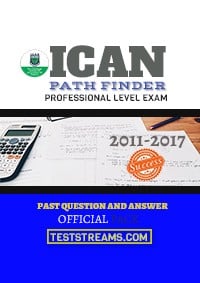Description

On this CITN Exam past questions and answers studypack, you’ll find hundreds of past and recent CITN Examination question papers and solutions to help you prepare adequately and guide your study. This Q/A study pack covers all CITN (Chartered Institute of Taxation of Nigeria) Courses which includes Technical, Foundation, Professional courses for both April and October Exams. This is a downloadable product and is accessible as soon as your purchase is complete. The study pack is in .PDF format. Meaning that you could study it on all devices (Phones/Tabs/Laptops etc). To proceed with your instant download of this pack, just add it to your basket, then proceed to complete your order using any payment method of your choice. We provide full support on all our Study-packs, and we guarantee that this pack will be very helpful if you want to ace the exams with ease.
Sample of CITN Exam Past Questions and Answers
- (a) State Five (5) reasons why business organisations adopt accounting policy.
(10 Marks)
(b) List Five (5) users of accounting information and state briefly their financial needs.
(10 Marks)
(Total 20 Marks)
SOLUTION TO QUESTION 2
a. Reasons why business organizations adopt accounting policy:-
i. To meet the economic decision-making needs of users.
ii. To faithfully represent the financial position, financial performance and cash
flows of the entity
iii. To ensure that the entity is free from bias.
iv. To ensure prudency.
v. To make sure that the financial statements are complete in all material respects.
vi. To comply with the concept of substance over form
vii. To ensure compliance with specific accounting standards requirement. (10 Marks)
b. Users of Accounting Information and their needs
i. MANAGEMENT – The information needs include formulating the policies of the
organization; planning the activities of the organization in the long, medium and short
term; controlling the activities of the organization.
ii. OWNERSHIP/SHAREHOLDERS – It is used to assess the profitability of the business
entity; to determine their dividends expectation; to assess management efficiency.
iii. INVESTORS – To determine the financial risk of the company; to determine their
returns on investment.
iv. GOVERNMENT – These include government agencies and regulatory bodies. The
information needs include: assessing company to tax; to determine whether all the
regulations have been complied with; to assess the status of the company for tax
incentives.
v. EMPLOYEES – To assess security of their employment as a basis for negotiating for
higher wages and benefits; to evaluate the going concern status of the company as a
basis for requesting for staff promotion.
vi. CREDITORS – To assess the credit worthiness of the company; to evaluate the length
of time it takes to pay its suppliers; to determine lending terms to the company.
vii. CUSTOMERS – To monitor the source of supply of their products or raw materials; to
evaluate the fairness of pricing policies.
viii. FINANCIAL ANALYSIS – Computation of basic ratios and other analytical tools to
determine trends in the economy and advising their clients regarding investing in a
business.
ix. COMPETITORS – Monitoring progress of other firms in the same industry and plan
for improvement.
x. GENERAL PUBLIC – Assessing the contribution of the business to the economy, their
social responsibilities and the environmental care assessment.
EXAMINER’S REPORT
The question tests candidates’ knowledge of objectives of carrying out tax planning. The
question was very straight forward and performance was good. More than 50% of the
candidates score over 60% of the marks allocated.
The commonest pitfall was that some candidates repeated the same points under part (a) and
part (b) of the question. Candidates are advised to improve on their preparation for future
examinations.
- It is a known fact that many state governments in Nigeria are facing serious challenges
in their assessment and collection of taxes of self-employed persons.
Required:
(a) Explain what is meant by “Self-employed Persons”. (5 Marks)
(b) What are their challenges? Suggest ways by which these challenges may be
addressed. (10 Marks)
(c) Describe the concept of presumptive tax regime. (5 Marks)
(Total 20 Marks)
SOLUTION TO QUESTION 2
(a) Self Employed Persons
These are tax payers who are not in regular/formal employment but generally engage
in self-employment as traders, farmers, artisans/craftsmen, partners in a partnership,
registered businesses, sole proprietors and entrepreneur. Most times they operate in the
informal sector and may not be registered by any government agency.
(b) (i) Challenges Faced in the Tax Administration of Self Employed Individuals are:
- Difficulty in establishing the data-base of such persons;
- Low level and ineffective of education and enlightenment;
- General tendency towards tax evasion;
Key Benefits of NEITI
(i) Demonstrating Commitment to Transparency
Implementation will send signal to stakeholders that Government is concerned
about the transparency and accountable payment and receipt of revenue from
Extractive Industry. This will make the companies adhere strictly to improving
transparency.
(ii) Efficiency in Revenue Collection
With increasing scrutiny of payment and revenues more revenue are generated
through tax collected from the industry.
(iii) Enhanced Communication
NEITI implementation will provide a platform for communication between all
stakeholders, and thus develop consensual solutions to problems.
(iv) Reduce Conflict
Implementation will reduce the risk of conflict and promote stability which will
promote a favourable investment climate.
(v) Improve Credit worthiness
Through regular NEITI reports on payments and revenues, a country may be
able to improve the credit worthiness of the government and of companies.
(vi) Disclosure and accountability
The implementation will provide the opportunity to disclose what has been paid
to different government agencies; the public will then be in position to hold
those agencies accountable for how these revenues are used in public
expenditure programmes.
(vii) Promote Stability
Implementation of NEITI will promote stability. Investing in Extractive
Industries is capital intensive and dependent on long-term stability to generate
returns.
(c) Protection Rights
(i) Where it had been customary for any citizen of Nigeria to win certain minerals
by virtue of his membership of that community whose custom is to win before
the commencement of the 1999 Decree such right is protected but subject to
Minister’s approval.
(ii) In the course of prospecting or mining, the Act prohibits any person from
carrying out operations on, in or under any area held to be sacred or permit
injury or destruction of any tree or other thing which is the object of veneration.











ogumba george –
I need the CITN Exam study pack
Toheeb Banire –
I seriously need this past question. Not looking available at the moment. Im writing in October diet
SAM Johnson –
Hi all, You have received a free copy. Please check your email. Hope you find them helpful. Please note that this is a review section, use this form to rate/rank the material after you have usage. Let’s know how helpful the material was to your success. To reach us quickly, you can click on “contact us”, or use the “chat box” on bottom-right corner of this page for even faster reach. Thank you
Adedoyin Anthonys –
Economics
IDEMUDIA BRIGHT –
please i need study materials and past questions for PT1, i beg u in the name of God Almighty, pls help….thanks as u do so
IDEMUDIA BRIGHT –
Professional Taxation 1
i. Quantitative Techniques
ii. Revenue Law
iii. Income Taxation
iv. Indirect Taxation
please help me….
Floxee –
Hi Imudia Bright, please i don’t know if you have received the study packs yet, if yes can u please send them to me all courses in professional exam 1.
Adewale Rukayat Iyabo –
Please help me on Principle of Taxation and Accounting
Samuel (Admin) –
You should have received your free pack, pls check your email.
Braveheart –
I found the questions and solutions really helpful in the PE1. However I will like if you people can recommend a tutor. cos there re so many learning centers out there we dont even know who’s best. But for this questions pack, Its on point! Thanks
Samuel (Admin) –
Thanks for the nice review. And as for the tutor, you can check the CITN website for some good learning centers.
Oluremi –
Hello.
I am writing only tax audit and investigation dis diet. Can I get all past questions and answers for both April n Oct diets.
Ashionye (verified owner) –
Great Stuff! Thanks for the automatic delivery. Please do you have studypack for ANAN?
Popoola Zainab –
Pls I also need the study pack pls especially the one’s on taxation and account related subjects
adewunmi –
Please, I need Professional Taxation -1 study pack
Professional Taxation 1
Quantitative Techniques
Revenue Law
Income Taxation
Indirect Taxation
Nurudeen –
Nice package but pls add more especially study packs. Thank you
Funmilola Egunjobi (verified owner) –
Does your study pack include the New syllabus? I’m writin PE1 this April 2020. please contact me via my email for the feedback.
funmidethompson@gmail.com
Thank you
Sarah –
pls i need past questions for principle of taxation.
Olayiwola Opeyemi –
Good day please I need study pack for the following:
1. Tax Audit and Investigation
2. International Taxation
3. Financial/Tax Analysis
4. Income Tax for specialized biz.
And also past question please
Ckan Ebong –
Hello, I need the study packs for 1. Tax Audit and Investigation
2. International Taxation
3. Financial/Tax Analysis
4. Income Tax for specialized biz.
And also past question please
Peter Adegoke –
Good
Peter –
I need CITN Pack for Specialized Business and Financial Analysis. Thank you so much in advance